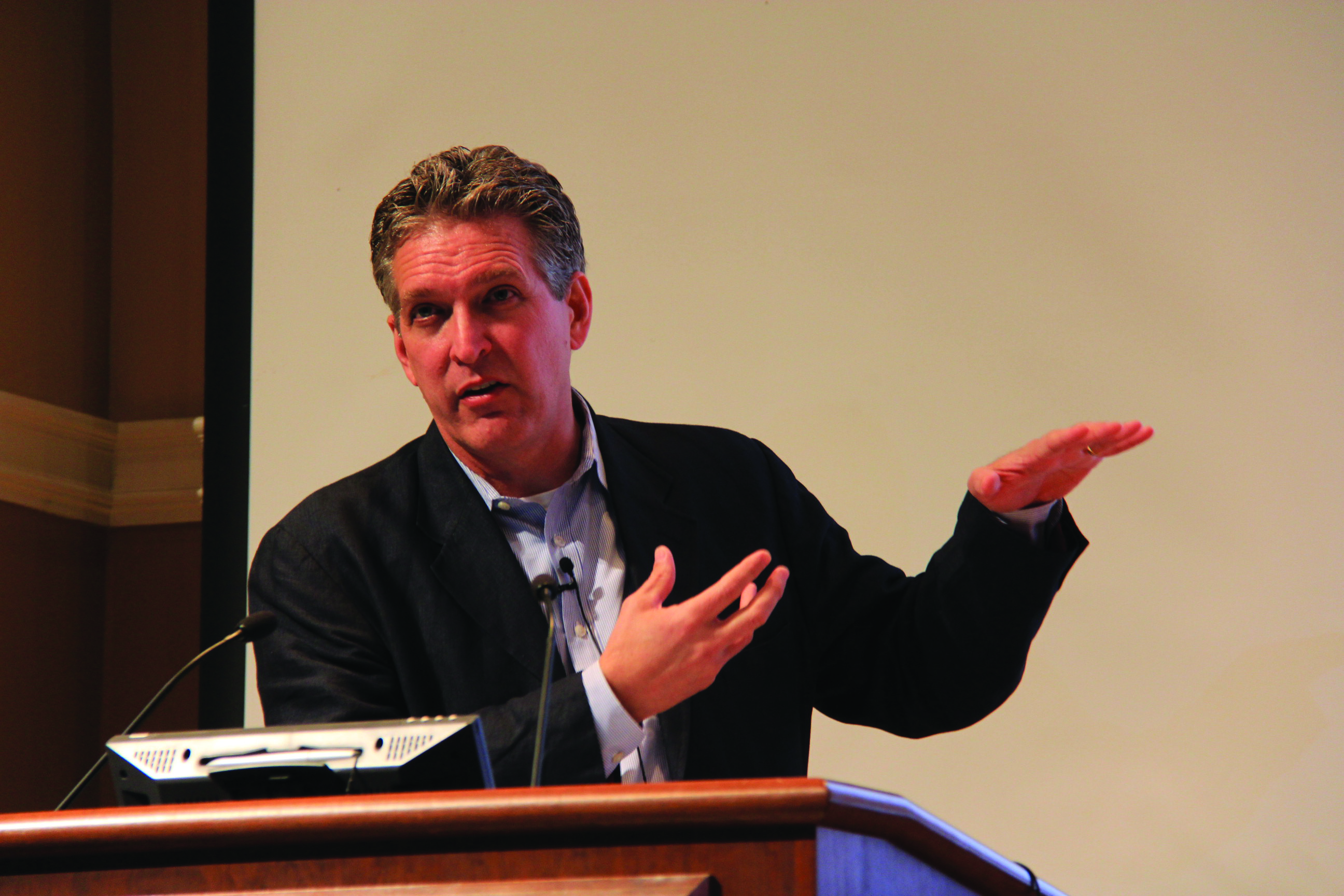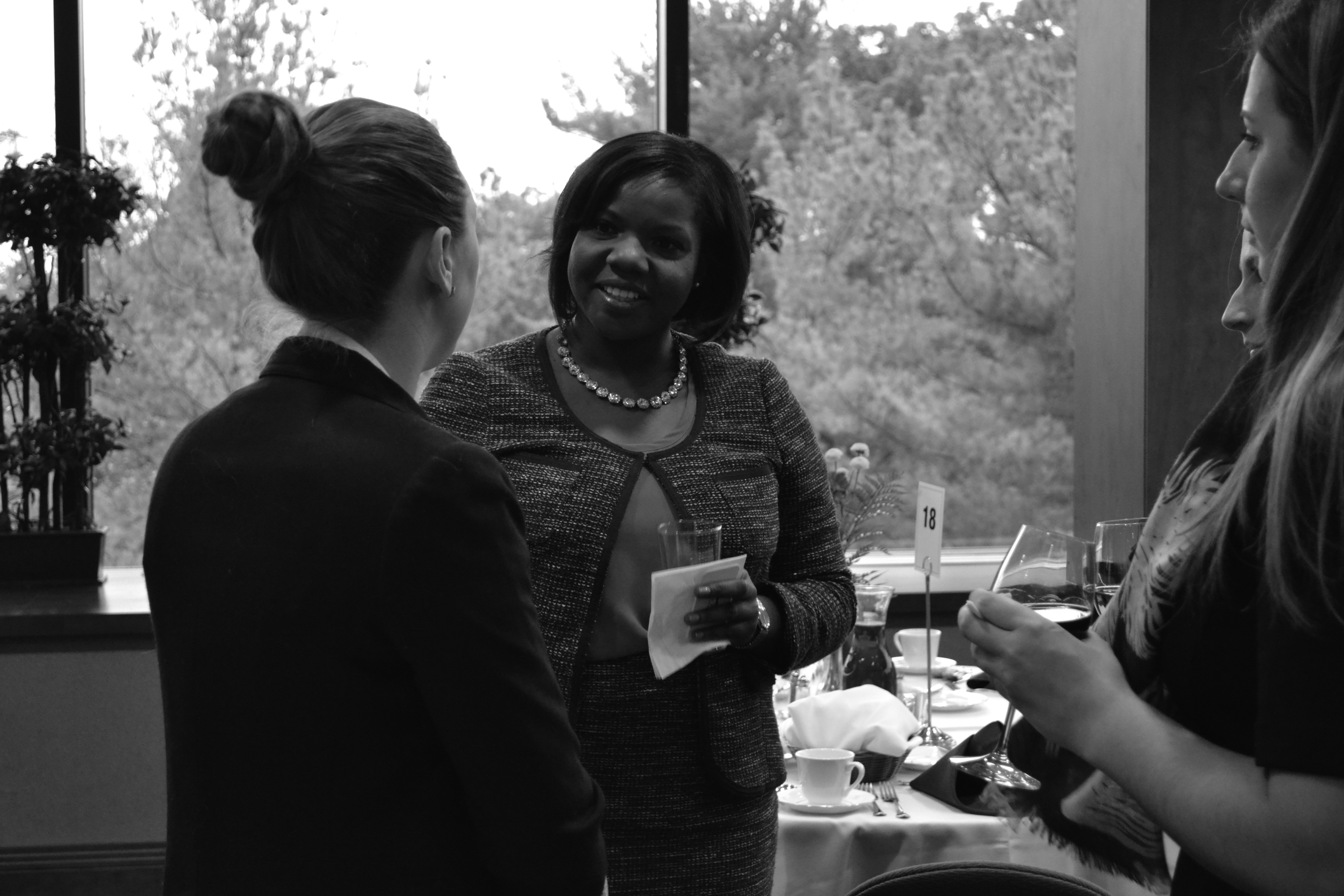William Powers came to the University on Oct. 8 as part of the First-Year Common Reading program. His book, “Hamlet’s Blackberry,” discusses the impact of technology in the digital age by observing major technological revolutions through time. He starts with the time of Socrates and brings it to the 21st century.
Nonconformity is an idea Powers carried with him as he wrote his book. In his talk, he said that he didn’t conform his writing to the typical technology article that shows how technology affects us right now. Instead, he wrote about how technology has affected society through time, not just in the present day. This is especially interesting on campus, where most students have grown up with cell phones and an internet connection from a young age. For us, the internet and smart phones have become an everyday part of life, fully integrated into most of our actions. Walking between classes, you can see students glued to their phones as they pass each other without acknowledgement. It’s as if we’ve formed a relationship with technology almost akin to our relationships with the humans around us.
Think about how you wake up in the morning. Without the technology of alarm clocks, when we were younger, most of us were kindly–or harshly, depending upon how deeply you slept– woken by our mothers. Now most of us wake up to phone alarms, and upon waking up, we check our latest emails, social media updates, and other applications on our phones.
With this in mind, it gets easier to see Powers’ point about the need for people to break away from technology. He said that for five years, his family participated in what they called an “Internet Sabbath,” which meant that they would break away from technology for the weekend. They would unplug in every sense of the word, not touching technology until Monday. The University has already begun to adopt its own form of an Internet Sabbath: the Dancing Mind Challenge. The Dancing Mind Challenge gives people the opportunity to break away from technology for the day, taking the time to read a book instead. Perhaps with the addition of more events like this, the University community can find value in time spent away from technology.

